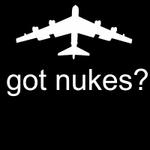 Fedaykin schrieb:Man wollte Israel Auslöschen als Rache an Frankreich und uk?
Fedaykin schrieb:Man wollte Israel Auslöschen als Rache an Frankreich und uk?
Ich denke nicht, dass es um Rache geht, sondern um Selbstbestimmung.
Schau dir mal diesen
Wiki-Artikel an.
Hier geht es um die Unruhen und auch das Vorfeld von 1920.
Die Unruhen ereigneten sich unmittelbar vor der Konferenz von Sanremo, an der das Schicksal der Region für die folgenden Jahrzehnte besiegelt wurde. Nach dem Historiker Tom Segev waren die Unruhen „gewissermaßen der Startschuss für den Kampf um das Land Israel“.Das ist schon deutlich zentral für diesen Konflikt.
Es gab wohl nach 1919, als das
Weizmann-Faisal-Abkommen unterzeichnet war eine deutliche Verschlechterung der Stimmung, eine Radikalisierung.
aus dem
obigen Link:
Das Prinzip der Selbstbestimmung der Völker sollte auf Palästina nicht angewandt werden. Diese Entwicklungen infolge des Ersten Weltkriegs führten zu einer Radikalisierung in der arabischen Welt.Man verweigerte die Selbstbestimmung.
Im Laufe des Jahres 1919 hatten sich die Beziehungen zwischen den Arabern und Juden in Jerusalem beträchtlich verschlechtert.Mir scheint, geschichtlich ist das der Ausgangspunkt.
Danach sammelt sich eine Gewalttat nach der anderen an und man ist sich spinne Feind.
Jetzt stell dir vor, man hätte 1919 und 1920 anders gestaltet.
Bestimmt gäbe es Knackpunkte, aber vielleicht ohne eine Radikalisierung.
uatu schrieb:Solche Angriffe sind absolut irre und durch nichts zu rechtfertigen!






